

Speakers
-


Dr. Adnan J. Khuraibet
Designation
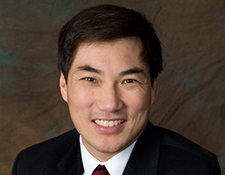
Biosketch of Andrew G. Lee, M.D.
- Professor of Ophthalmology
- Weill Cornell Medical College
- Chairman, Department of Ophthalmology, The Methodist Hospital, Houston, TX
- Adjunct Professor of Ophthalmology, Baylor College of Medicine
- Adjunct Professor of Ophthalmology, University of Iowa Hospitals and Clinics
- Clinical Professor of Ophthalmology, Department of Ophthalmology and Visual Sciences, University of Texas Medical Branch at Galveston
Andrew G. Lee, M.D. is chair of the Department of Ophthalmology at The Methodist Hospital in Houston, Texas and is Professor of Ophthalmology, Neurology, and Neurosurgery at Weill Cornell Medical College. He is adjunct professor of Ophthalmology at Baylor College of Medicine and the University of Iowa and Clinical Professor at the University of Texas Medical Branch in Galveston, Texas. Dr Lee serves on the national and international Editorial Board of 12 journals including the American Journal of Ophthalmology, the Canadian Journal of Ophthalmology, the Japanese Journal of Ophthalmology, the Journal of Neuro-ophthalmology, and Eye and is the editor in chief of the Journal of Academic Ophthalmology. He has published over 300 peer-reviewed articles, 40 book chapters, and eight full textbooks in ophthalmology. He has been the invited speaker at over 35o national and international eye meetings and has delivered 12 named lectures. He has a special interest in resident education and enjoys teaching about teaching in ophthalmology.
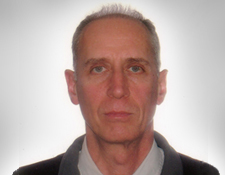
Dr. Daniel Gendron MD, FCRP (C)
He is a Consultant Neurologist and Director of the EMG Lab at the Montreal neurological Institute.
Apart from his administrative duties, the major part of his time is devoted for teaching at the Montreal Neurological Hospital. He organises the Neurology rotation of the medical students and is involved in the daily clinical teaching in the EMG laboratory and in the weekly discussion in the Neurology rounds held at MNH.
He has received the Neurology Teaching Award of the McGill Neurology training programme three times and also received Penfield award in 1982. His special interest is in the field of Neuromuscular diseases and the use of Botulinum toxin in Neurological diseases.

Philip R. Schauer, MD
Dr. Philip Schauer is Professor of Surgery at the Cleveland Clinic Lerner College of Medicine, Chief of Minimally Invasive General Surgery and Director of the Cleveland Clinic Bariatric and Metabolic Institute (BMI). He is past president of the American Society for Metabolic & Bariatric Surgery (ASMBS). He is co-chair of Obesity Week, the worlds largest annual meeting devoted to the science and treatment of Obesity starting November 2013.
After receiving his medical degree from the Baylor College of Medicine, Dr. Schauer completed his residency in surgery at The University of Texas, where he served as chief resident of general surgery. He then completed his fellowship in laparoscopic surgery at Duke University Medical Center. Prior to joining The Cleveland Clinic in 2004, Dr. Schauer served as director of endoscopic surgery, director of bariatric surgery and Director of the Mark Ravitch/Leon Hirsch Center for Minimally Invasive Surgery at the University of Pittsburgh Medical Center.
Dr. Schauer's clinical interests include surgery for severe obesity, minimally invasive surgery (laparoscopic), and gastrointestinal surgery. He has performed more than 5000 operations for severe obesity. His research interests include the pathophysiology of obesity and related diseases, physiologic effects of laparoscopic surgery on postoperative injury and recovery, and outcomes of laparoscopic management of obesity, gastrointestinal diseases, and hernias. He has also participated in the development of new minimally invasive, endoscopic, and laparoscopic operations. New concepts in surgical training and education have been a major focus of his educational interests.
He has authored more than 200 scientific papers, editorials, textbook chapters, and video productions. He is editor of the textbook Minimally Invasive Bariatric Surgery. He has been an invited speaker for more than 100 regional, national and international lectures on the subject of obesity surgery and laparoscopic surgery. He is principal investigator of the STAMPEDE trail comparing medical and surgical treatment of diabetes and 2 NIH funded studies evaluating surgical treatment of diabetes and obesity. He is past chairman of the research and training and credentialing committees of ASMBS. He is current chairman of the Bariatric Surgery Section of the Obesity Society. He has been on the board of Governors of the Society of American Gastrointestinal and Endoscopic Surgeons. He is also a member of International Federation of Surgery for Obesity, the American Surgical Association, the Society of University Surgeons, the Society of Surgery of the Alimentary Tract, Central Surgical Society, and the Society of Clinical Surgery. He is a member of the Board of Governors of the Fellowship Council and past member of the American Board of Surgery Advisory Council. He is on the editorial board of Surgery for Obesity and Related Diseases and Obesity Surgery as well as 3 other medical journals. He has been director of more than 100 courses and workshops on advanced laparoscopic surgery and has trained more than 40 fellows in advanced laparoscopic and bariatric surgery.
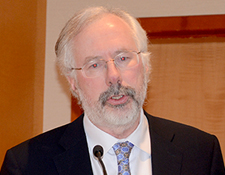
Prof. Gregory Krauss
Current Appointment:
2009-present : Professor, Department of Neurology, Johns Hopkins University School of Medicine, Baltimore, Maryland
Education
- 1974-1978 Harvard College B.A. Cambridge, Massachusetts
- 1979-1981 Harvard College Premedical Cambridge, Massachusetts Studies
- 1981-1985 Oregon Health Sciences University M.D. Portland, Oregon
Postgraduate Training:
- 1985-1986 Medical Intern Yale Dept Psychiatry, Greenwich Hospital Greenwich, Connecticut
- 1986-1989 Neurology Residency Johns Hopkins Hospital Baltimore, Maryland
- 1989-1991 Epilepsy and Electrophysiology Fellowship Johns Hopkins Hospital Baltimore, Maryland
Professional Experience
- 1991-1993 Instructor, Department of Neurology, Johns Hopkins University School of Medicine, Baltimore, Maryland
- 1993-2002 Assistant Professor, Department of Neurology, Johns Hopkins University School of Medicine, Baltimore, Maryland
- 1996-present Director, Adult Epilepsy Clinic, Department of Neurology, Johns Hopkins University School of Medicine, Baltimore, Maryland
- 2003-2009 Associate Professor, Department of Neurology, Johns Hopkins University School of Medicine, Baltimore, Maryland
- 2009-Present Professor, Department of Neurology, Johns Hopkins University School of Medicine, Baltimore, Maryland
Educational Activities
Non-Peer Reviewed Articles (Reviews and Technology Assessments)
Uematsu S, Lesser R, Fisher R, Krauss G, Hart J, Vining EP, Freeman J, Gordon B. Resection of the epileptogenic area in critical cortex with the aid of a subdural electrode grid. Proceedings of the Xth Meeting of the World Society for Stereotactic and Functional Neurosurgery, Maebashi, Japan, October 1989, Stereotact Funct Neurosurg 1990;54&55:34-45.
Krauss GL, Fisher RS. The EEG in alcoholism. American Journal of EEG Technology, 1992;32:118-126
Fisher RS, Krauss GL, Ramsay E, Laxer K, Gates J. AAN Technology Assessment Review Assessment: vagus nerve stimulation for epilepsy. Neurology, 1997;49:293-297. 4.
Krauss GL, Mathews GC. Simillarities in mechanisms and treatment for epileptic and nonepileptic myoclonus. Epilepsy Currents. 2003;3(1):19-22.
Krauss GL. Current understanding of delayed anticonvulsant hypersensitivity reactions. Epilepsy Currents, 2006. 6, 33-37.
Krauss GL. Cognitive Activation of "Hyperexcitable Cortex" in JME: Can It Trigger Seizures? Epilepsy Curr. 2011 Nov;11(6):184-5.
Krauss GL, Edwards HB, Lin B. Lacosamide for the treatment of epilepsy. Ann Med. 2012 Mar 1
Krauss GL. Which Hippocampal Sclerosis is Imaged With 7-T MRI? Epilepsy Curr. 2012;12(3):99-100.
Bateman LM, Begley CE, Ben-Menachem E, Berg AT, Berkovic SF, Cascino GD, Drazkowski J, Edwards JC, Engel J Jr, French JA, Gilliam FD, Hoerth MT, Jehi LE, Kanner AM, Krauss GL, Labiner DM, Loddenkemper T, Luders HO, McKhann GM 2nd, McLachlan R, Modi A, Pennell PB, Shafer PO, Sirven JI, Stern JM, Szaflarski JP, Theodore WH. Overcoming barriers to successful epilepsy management. Epilepsy Curr.2012;(4):158-60.
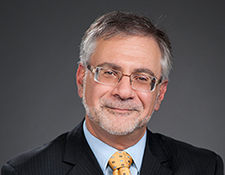
Prof. Jon Stoessl
Current Faculty & research appointments:
Head, Division of Neurology, UBC & Vancouver Hospital, 2010-
Director, Pacific Parkinson’s Research Centre and National Parkinson Foundation Centre of Excellence at UBC, 2001-present;
Canada Research Chair (Tier I) in Parkinson’s Disease, 2000-present.
Director, CIHR Team in Parkinson’s Disease, 2001-2011 and MSFHR Research Unit in Parkinson’s Disease and Monoaminergic Function in the Central Nervous System, 2006-2010.
Professor, UBC, 1996-present;
Other activities:
- Neuroscience “A” committee, Medical Research Council of Canada, 1996-1999, 2000
- Behavioural Sciences “B” committee, CIHR, 2001
- Scientific Advisory Board, Parkinson Foundation of Canada, 1992-2002
- Scientific Advisory Board, Tourette Syndrome Association (USA), 1992-2001
- Scientific Advisory Panel, Huntington Society of Canada, 1991-1999
- Research Committee, Ontario Mental Health Foundation, 1991-1996 (Chairman 1994-96)
- World Federation of Neurology Research Committee on Parkinsonism & Related
- Disorders, 2001-present (Councillor 2010- ).
- Movement & Exercise Committee, CIHR, 2002-2005
- Scientific Advisory Board, National Parkinson Foundation (US), 2000-
- Chair, Scientific Advisory Board, Parkinson Society Canada, 2004-2009
- Editorial Board, Canadian Journal of Neurological Sciences, 1999-2003
- Editorial Board, Movement Disorders, 2000-2003
- Editorial Board, Annals of Neurology, 2001-
- Editorial Board, Lancet Neurology, 2004-
- Editorial Board, Parkinsonism & Related Disorders, 2008-
- Awards Committee, Movement Disorders Society, 2005-present (Chair, 2009- ).
- International Executive Committee, Movement Disorders Society, 2009-
- Interdisciplinary Adjudication Committee, Canada Research Chairs, 2008-2011 (Chair 2010-2011)
- Co-Chair, Mentoring Committee, Parkinson Study Group, 2010-2012; Chair 2012-
- Executive Committee, Parkinson Study Group, 2012-
- Co-chair, World Parkinson Congress, Montreal 2013
Award & Honours:
- Career Scientist Award, Ontario Ministry of Health, 1989-1996
- Best Doctors (Canada) – 1996, 2007
- Canada Research Chair (Tier I) – Central Nervous System Disorders, 2000-
- Queen Elizabeth Golden Jubilee Medal, 2002
- Donald B. Calne Lectureship, Parkinson Society of Canada, 2006
- Bundy Visiting Professorship, Mayo Clinic Jacksonville, 2007
Member, Order of Canada, 2007
- Fellow, American Academy of Neurology, 2008
- Fellow, Canadian Academy of Health Sciences, 2009
Publications:
>245 papers & book chapters
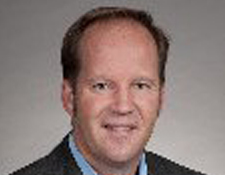
Prof. Joseph Zunt
Education
BA University of Minnesota, Minneapolis Major: Psychology, 8/81-12/86
MD University of Minnesota School of Medicine Minneapolis, 8/87-6/91
MPH University of Washington, Seattle Major: Epidemiology: 9/95-6/98
Postgraduate Training
Internship University of Washington, SeattleDepartment of Medicine, 7/91-6/92
Neurology Residency University of Washington, Seattle Department of Medicine Division of Neurology, 7/92-6/95
Infectious Diseases University of Washington, Seattle Fellowship Department of Medicine: 7/95-6/98
Teaching Scholars University of Washington, Seattle Certificate Program Department of Biomedical Education and Informatics: 9/02-7/03
Faculty Positions
- 1997-1998 Acting Instructor, Department of Neurology, University of Washington
- 1998-1999 Acting Asst. Prof., Department of Neurology, University of Washington
- 1999-2005 Assistant Professor, Department of Neurology, University of Washington
- 2005-present Associate Professor, Department of Neurology, University of Washington Adjunct Associate Professor, Department of Medicine, Infectious Diseases
- 2007-present Associate Professor (Joint), Department of Global Health
- 2008-present Elected to Graduate Faculty, University of Washington
- 2009-present Adjunct Associate Professor, Department of Epidemiology, University of Washington
- 2010-present Miembro Temporal, Universidad Nacional Mayor de San Marcos, Lima, Peru
- 2012-present Professor, Departments of Neurology and Global Health Adjunct Professor, Departments of Epidemiology and Medicine
Hospital Appointments
- 1991-present Staff privileges: Harborview Medical Center
- 1991-present Staff privileges: University of Washington Medical Center
- 2001-present Staff privileges: Seattle Cancer Care Alliance
- 1991-2004 Staff privileges: Veteran’s Affairs Puget Sound Health Care Center
- 1999-2000 Staff Privileges: Swedish Medical Center
Honors
- 1986 Tonka Scholarship
- 1990 Minnesota Medical Foundation Medical School Scholarship
- 1996-1999 Post-Doctoral Fellow, International AIDS Research and Training Program
- 1999 New Investigator Award: Sexually Transmitted Diseases Cooperative Research Center
- 1999 Fellowship Award, Ninth International Conference on Human Retrovirology: HTLV and Related Viruses
- 2004 “Padrino” Centro de Investigacion “Alberto Barton”, Callao, Peru
- 2012 Visiting Professor, Mayo Medical School
- 2013 Visiting Professor and 1st Neurology Global Health Lecturer, Harvard Medical School
Board Certification
2004 to Present Diplomate, American Board of Psychiatry and Neurology #52606
Medical Licensure
1991-present Washington State #MD00031503
- 1993-present American Academy of Neurology Section member: Neuro-Infectious Diseases (Councilor) Bruce Schoenberg Award Committee (Chair 2007-11) Global Health Special Interest Group (signatory member)
- 1998-present Washington State Medical Association
- 1999-present International Society for NeuroVirology
- 2003-present Sociedad Peruana de Neurologia, Honorary Member
- 2004-present American Society of Tropical Medicine and Hygiene
- 2011-present International Society for Infectious Diseases
Editorial Responsibilities
Editorial Board:
- Revista Peruana de Epidemiologia 2009 -present.
- PLoS Neglected Tropical Diseases 2012 – present
- PLoS One 2013-present
Ad hoc reviewer: Clin Infect Diseases, Trans Royal Soc Trop Med Hygiene, J Infect Diseases, Sexually Transmitted Diseases, Acta Neuropathologica, Lancet Neurology, Amer Soc Trop Med Hygiene, Int J of Infect Diseases, Acta Parasitologica, The Neurologist, Neurology, Pediatric Infectious Disease Journal, Journal of the Neurological Sciences, PLoS Neglected Tropical Diseases, Pathogens and Global Health, European Journal of Neurology, Lancet Infectious Diseases
Special Local Responsibilities
- 2002-2006 Co-coordinator, Department of Neurology Grand Rounds
- 2002-present Neurology Resident Mentor
- 2003-present Site director, UW GHIP and GHE programs Selection committee, GHIP, GHE
- 2004-2008 Site Director, Harborview, Medical Student neurology rotations
- 2005-2009 Preceptor for Procedures Elective for Medicine interns, Lumbar puncture clinic
- 2005-present Member, Peruvian Framework in Global Health Advisory Board
- 2005-present Member, Dept of Global Health Curriculum Advisory Committee
- Subcommittee: Global Health Resident Education and Training
- Subcommittee: Site Selection, Development and Support
- Subcommittee: MPH degree program
- Subcommittee: Travel Safety and Study Abroad Working Group
- 2007-present Associate Director, International Core, Center for AIDS Research
- 2007-present Member, Executive Advisory Board, Center for AIDS Research Co-Director, International Core
- 2008-present Member, Medicine Residency Global Health Advisory Group
- 2008-present Member, Global Health Pathway Working Group
- 2009-present Member, Infectious Diseases Fellow Selection Committee
- 2010-present Co-director, Program in Education and Research in Latin America (PERLA)
- 2011 Peer reviewer, GH 561
- 2012 Chair, External Advisory Board for the Department of Family Medicine's Global Health Fellowship, University of Washington, 2012 – present
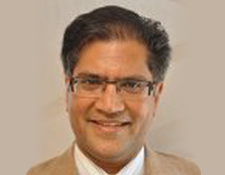
Prof. Manohar Bance
Appointments And Positions
Current Appointments
Area of Practice
Otology, Neurotology, Cochlear Implants and Skull Base Surgery
University Appointments:
Professor, Dept. of Surgery, Division of Otolaryngology, Dalhousie University, Halifax, Nova Scotia, Canada. Jan 1st 2001-
Head, Division of Otolaryngology-Head and Neck Surgery, Dalhousie University, Halifax, NS, Canada April 1st 2013-
Acting Head, Division of Otolaryngology-Head and Neck Surgery, Dalhousie University, Halifax, NS, Canada Sept 1st 2009- Feb 28th 2013
Cross Appointments:
Professor
- School of Biomedical Engineering, Dalhousie University
- Dept. of Anatomy and Neurobiology, Dalhousie University
- School of Human Communication Disorders, Dalhousie University
- Associate Staff, Division of Neurosurgery, Dept. of Surgery
Director:
- Ear and Auditory Research Laboratory (E.A.R. Laboratory), Dalhousie University
- Sensory Encoding and NeuroSensory Engineering (SENSE) Laboratory, Dalhousie University
Hospital Appointments:
Staff OtolaryngologistQEII and IWK Health Sciences Centres, Halifax, Nova Scotia, Canada. Jan 1st 2001-
Previous appointments:
Associate Professor, Dept. of Surgery, Dalhousie University Halifax, Nova Scotia 2001-2005
Assistant Professor, Dept. of Otolaryngology, University of Toronto,Toronto, Ontario, Canada. Sept. 1996 – Dec. 2000
Staff Otolaryngologist (Otology/Neurotology) Dept. of Otolaryngology, The Toronto Hospital-University Health Network Toronto, Ontario, Canada. Sept. 1996 – Dec. 2000
Biographical Information
Qualifications:
Bachelor of Medicine and Surgery (M.B., Ch.B.) July 1985 University of Manchester, Manchester, England, UK
Bachelor of Science (B.Sc Hons) Physiology July 1982 University of Manchester, Manchester, England, UK
Master of Science (M.Sc.) Vestibular Neuroscience June 1991 Institute of Medical Science, University of Toronto, Ontario, Canada Thesis: The activity of Burst Neurons in rhesus monkey brainstem neurons during active head movements: integration with the vestibulo-ocular reflex
Fellow of the Royal College of Surgeons of Canada (FRCSC) (Otolaryngology) Sept. 1995 Royal College of Physicians and Surgeons of Canada
Board Certification, American Board of Otolaryngology June 1996
Certification:
Exams:
- Fellow Royal College Surgeons of Canada (FRCSC)
- Diplomat American Board of Otolaryngology
- American Boards Subspeciality Examination Certification in Neurotology
- Licentiate of Medical Council of Canada (LMCC)
- Foreign Medical Graduates Examination in Medical Sciences (FMGEMS)
- FLEX
- Licenses:
- General (unrestricted) License: Nova Scotia, Canada.
- Full Registration: Great Britain
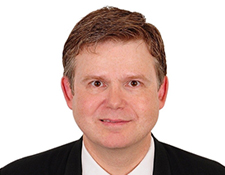
Dr. Edward James Cupler
Current Position
- August 2010 - Present
Head Section, Neurophysiology
Director, Neurology Residency Training Program
Consultant : Neurology, Neuroimmunology, Neuromuscular Disorders and Sports Neurology
King Faisal Specialist Hospital and Research Center - Jeddah
Jeddah, Saudi Arabia
Previous Positions
- July 2006 - Aug 2010
Director : Neuromuscular Diseases Center
Director : OHSU MDA Clinic
Co-director; ALS Center of Oregon
Associate Professor of Neurology
Department of Neurology
Oregon Health and Science University
Portland, Oregon USA - April 2005 - June 2006
Assistant Professor of Neurology
Oregon Health and Science University
Portland, Oregon - October 2002 - March 2005
Head, Section of Neurology,
Department of Neurosciences MBC 76
King Faisal Specialist Hospital and Research Centre,
PO Box 3354
Riyadh, 11211 Saudi Arabia - October 1999 - December 2004
Director, Neurology Residents’ Training Program
King Faisal Specialist Hospital and Research Centre - July 1996 - March 2005
Consultant Neurologist, Neuroimmunologist and Neuromuscular Disease Specialist
Department of Neurosciences
King Faisal Specialist Hospital and Research Centre - July 1995 - June 1996
Senior Clinical Investigator
Neuromuscular Diseases Section
Medical Neurology Branch
National Institute of Neurological Disorders and Stroke
National Institutes of Health - July 1992 - June 1995
Clinical Associate
Neuromuscular Diseases Section
Medical Neurology Branch
National Institute of Neurological Disorders and Stroke
National Institute of Health
Postgraduate Medical Education
- 1989 - 1992
Resident in Neurology (6 Months as Chief Resident), Baylor College of Medicine Houston, Texas - 1988 - 1989
Resident in Internal Medicine, Loyola University College of Medicine, Maywood, Illinois
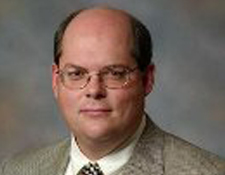
Prof. P.James B.Dyck
Personal Information
- Date of Birth: March 10, 1965
- Place of Birth: Rochester, MN, U.S.A.
- Citizenship: United States of America
- Work Address: Department of Neurology Mayo Clinic 200 First Street SW Rochester, MN 55905 (507) 284-3250
- Spouse: Marian Lee Monroe Dyck
- Children: Sophie Marian Monroe Dyck Jacob Marshall Monroe Dyck
Present Academic Rank And Position
- 2001 – Present Consultant in Department of Neurology, Mayo Clinic, Rochester, MN
- 2004 – Present Director, Neuromuscular Pathology Laboratory (Peripheral Nerve), Mayo Clinic, Rochester, MN
- 2006 – Present Section Head, Peripheral Nerve Section, Department of Neurology, Mayo Clinic, Rochester, MN
- 2006 – Present Director, Peripheral Nerve Fellowship Program, Mayo Clinic, Rochester, MN
- 2011 - Present Professor in Department of Neurology, Mayo Clinic, Rochester, MN
Education
- 1983 - 1987 Bachelor of Arts, Carleton College, Northfield, MN, majored in chemistry; participated in theater program, London, England, 1986
- 1987 - 1991 Medical Doctor, University of Minnesota School of Medicine, Minneapolis, MN
- 1991 - 1992 Internship, Internal Medicine, Virginia Mason Hospital, Seattle, WA
- 1992 - 1995 Residency, Neurology, Barnes Hospital and Washington University, St. Louis, MO
- 1995 - 1996 Peripheral Nerve Clinical Fellow, Department of Neurology, Mayo Clinic, Rochester, MN
- 1996 - 1997 Electromyography Fellow, Department of Neurology, Mayo Clinic, Rochester, MN
- 1997 - 1999 Peripheral Nerve Research Fellow, Peripheral Neuropathy Research Laboratory, Mayo Clinic, Rochester, MN
Board Certification
- 1998 Diplomat of American Board of Psychiatry and Neurology (Neurology)
- 1999 Diplomat in clinical neurophysiology (1029), American Board of Psychiatry and Neurology
- 2001 Diplomat for qualifications recognition in Neuromuscular Pathology (Peripheral Nerve) through American Academy of Neurology
- 2008 Maintenance of certification in Neurology (45,543), American Board of Psychiatry and Neurology
- 2009 Maintenance of certification in Clinical Neurophysiology (1029), American Board of Psychiatry and Neurology
- 2009 Diplomat in Neuromuscular Medicine (224), American Board of Psychiatry and Neurology
Honors/Awards
- 1983 Carleton Scholar, Carleton College, Northfield, MN
- 1992 Neurology Award, Virginia Mason Hospital, Seattle, WA
- 1998 Travel Fellowship Award, American Neurological Association meeting, Montreal, Canada
- 1999 Travel Fellowship Award, American Neurological Association meeting, Seattle, WA
- 2001 Cover of journal, Illustration of microvasculitis from non-diabetic lumbosacral radiculoplexus neuropathy, Brain
- 2003 Contemporary Clinical Issues Session, American Academy of Neurology meeting, Honolulu, HI; chosen from approximately 1600 abstracts: Peripheral neuropathy following gastric bypass surgery
- 2004 Contemporary Clinical Issues Session, American Academy of Neurology meeting, San Francisco, CA; chosen from approximately 1600 abstracts: Targeted fascicular nerve biopsies from MRI lesions
- 2005 Fellow of American Academy of Neurology (FAAN)
- 2008 Cover of journal, Illustration shows granulocytic sarcoma involving the brachial plexus, Journal of the Peripheral Nervous System
- 2008 Medical story of the year, Outbreak of immune polyradiculoneuropathy in workers exposed to aerosolized porcine tissue, Rochester Post-Bulletin
- 2010 Cover of journal, Illustration showing of metastatic breast carcinoma cauda equina, Journal of the Peripheral Nervous System
- 2011 CDC Charles C. Shepard Science Award for Assessment and Epidemiology, Epidemiologic investigation of immune-mediated polyradiculoneuropathy among abattoir workers exposed to porcine brain,
- 2013 Cover of journal, Detail of sural nerve biopsy showing axonal degeneration and demyelination on teased nerve fiber preparations, Neurology
Previous Professional Positions And Major Appointments
- 1999 - 2001 Senior Associate Consultant in Neurology, Mayo Clinic, Rochester, MN
- 2001 - 2004 Co-director, Neuromuscular Pathology Laboratory (Peripheral Nerve), Mayo Clinic, Rochester, MN
- 1999 - 2004 Assistant Professor of Neurology, Mayo Medical School, Rochester, MN
- 2005 - 2011 Associate Professor of Neurology, Mayo Medical School, Rochester, MN
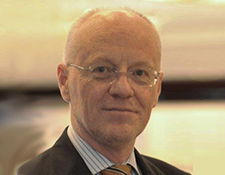
Prof. Peter Goadsby
Current Appointment
Professor of Neurology, University of California, San Francisco, San Francisco CA
Place of birth: Sydney, Australia
Education:
- 1977-1985 University of New South Wales (UNSW), Sydney Australia MB BS Honours
- 1981 UNSW BMedSc High distinction
- 1983 UNSW PhD Neuroscience
- 1985 Prince Henry/Prince of Wales Hospital, Sydney Intern Medicine
- 1988 Educational Commission for Foreign Medical Graduates FMGEMS
- 1986-1987 Prince Henry/Prince of Wales Hospital, Sydney Resident Medicine
- 1988 Prince Henry/Prince of Wales Hospital, Sydney Registrar Neurology
- 1989 Prince Henry/Prince of Wales Hospital, Sydney Registrar Clinical Neurophysiology
- 1990 UNSW MD Medicine
- 1990 Royal Australasian College of Physicians FRACP Medicine
- 1990 The National Hospital for Nervous and Mental Diseases, Queen Square Neurology
- 1996 UNSW DSc Medicine
- 1998 Royal College of Physicians FRCP Medicine
Principle positions held:
- 1991-1994 Prince Henry/Prince of Wales Hospital, Sydney Consultant Neurology
- 1991-1993 University of New South Wales Senior Lecturer Neurology
- 1994 University of New South Wales Associate Professor Neurology
- 1995 Institute of Neurology (ION), University College London Reader Neurology
- 1995-2010 The National Hospital for Neurology and Neurosurgery, Queen Square Hon. Consultant Neurology
- 1995-2005 ION Wellcome Senior Research Fellow Clinical Science
- 1998-2010 ION Professor Neurology
- 1998-current Hospital for Sick Children, Great Ormond St London Hon. Consultant Neurology
- 2007-current University of California, San Francisco Professor Neurology
Honours and Awards:
- 1983 H G Wolff MD Award American Association for the Study of Headache
- 1991 H G Wolff MD Award American Association for the Study of Headache
- 1992 A.W. Campbell Award from the Australian Neuroscience Society
- 1993 Edgeworth David Medal of the Royal Society of New South Wales
- 1994 Gottschalk Medal, Australian Academy of Science
- 1994 H G Wolff MD Award American Association for the Study of Headache
- 1996 Canadian Neurological Sciences Society, Neurology Lecturer, London Ontario
- 1996 MacDonald Critchley Lecture, XIIth Migraine Trust Meeting, London UK
- 1998 Thomas Willis Lecture, Montreal Neurological Institute
- 1998 Honorary Member Canadian Headache Society/Canadian Neurological Society
- 1999 Elected to membership American Neurological Association
- 2000 Honorary Member of the Belgian Neurological Society
- 2002 Kaplan Award American Headache Society
- 2003 NN Gupta Oration, Lucknow
- 2004 H G Wolff MD Award American Association for the Study of Headache
- 2005 Invited Plenary Lecture International Association for the Study of Pain, Sydney
- 2005 Invited lecture World Congress of Neurology, Sydney
- 2005 Inaugural Lecture to Pakistan Headache Society, Karachi
- 2005 Honorary Member Societa’ Italiana per lo Studio Delle Cefalee (SISC)
- 2006 14th Annual Oration of the Indian Academy of Neurology, Bangalore
- 2007 252nd Croonian Lecture, Royal College of Physicians, London
- 2007 Robert C Collins Lecture UCLA
- 2007 Seymour Solomon Lecture, American Headache Society, Chicago
- 2008 Federigo Sicuteri Lecture Firenze
- 2008 11th Biennial Migraine Trust Lecture, European Headache/Migraine Trust London
- 2008 5th Cluster Headache Award Casimiro Mondino Foundation
- 2009 H G Wolff MD Award American Association for the Study of Headache
- 2010 Enrico Greppi Award, Societa’ Italiana per lo Studio delle Cefalee
- 2010 38th Japanese Headache Society Invited Keynote Lecture, Tokyo
- 2010 GB Pant Department of Neurology Oration, Delhi
- 2011 President- International Headache Society
- 2011 Honorary member, Neurological Society of Agra, U.P. India
- 2011 39th Tow Prize Lecture, Coast Medical Association, Sydney
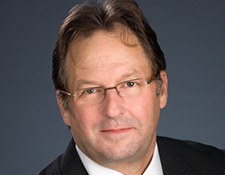
Prof. Philip Teal
BMeSc, MD, FRCPC
Professor of Neurology
University of British Columbia
Vancouver, Canada
Dr. Teal is the Sauder Family and Heart and Stroke Foundation Professor of Clinical Stroke Neurology, University of British Columbia. Dr. Teal is the Director of the Vancouver Stroke Program at the Center for Stroke and Cerebrovascular Diseases and is on active staff at the Vancouver General Hospital and Health Sciences Centre and is on the consulting staff at BC Children’s Hospital for the assessment of pediatric stroke patients.
Dr. Teal has participated in the in the development of published guidelines for the prevention and treatment of stroke as well as numerous scientific publications and chapters.
Dr. Teal’s primary clinical and research interests are stroke prevention and the treatment of acute stroke. Dr. Teal has participated in over 100 clinical research trials testing new stroke therapies including participation in the early trials of intravenous and intra-arterial thrombolytic therapy for acute stroke. Dr. Teal has a longstanding interest in antithrombotic therapies for stroke prevention.
Dr. Teal has received several awards and recognitions for teaching and education.
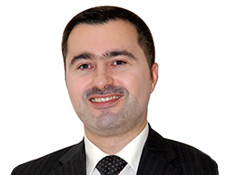
Dr. Raed Alroughani
Raed Alroughani received a degree in medicine from Charles University. He finished his neurology residency from the University of British Columbia and obtained the neurology certification from the Royal College of Physicians & Surgeon (Canada). He then finished a fellowship in demyelinating disorders at the University of British Columbia. He worked as attending neurologist at the Royal Columbian Hospital (Canada), after which he joined the division of neurology at Amiri hospital (Kuwait). He established the first multi-disciplinary MS clinic at Dasman Research Institute in 2011. He currently serves as a director of MS clinic in Dasman Research institute and as a head of MS clinic at Ibn-Sina hospital.
Dr Alroughani’s fields of interest are principally directed towards the epidemiology and therapeutics of multiple sclerosis. He established the first national MS registry in Kuwait. He currently serves in the scientific leadership group of MS Base, which represents the largest international MS database involving more than 60 countries. He published many key papers on the natural history of MS and use of disease modifying therapies in Kuwait.
Dr Alroughani served as a member of the joint ethical committee formed by Kuwait University and Ministry of Health. He is the past treasurer of the Kuwait Neurological Society. He currently sits on the executive boards of various scientific associations, steering committees and advisory boards, mainly in the field of MS.
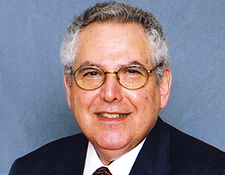
Prof. Stanley Fahn
Biographical Sketch Of Stanley Fahn, M.D.
Stanley Fahn, MD, is the H. Houston Merritt Professor of Neurology and Director of the Center for Parkinson’s Disease and Other Movement Disorders at Columbia University in New York City. His major interest has been in experimental therapeutics, and has helped organize several trials for the Parkinson Study Group (PSG), including the ELLDOPA trial. He helped create the UPDRS, the Fahn-Marsden Dystonia Rating Scale, and the Tremor Rating Scale. He co-founded the PSG, the Movement Disorder Society, the journal Movement Disorders, the World Parkinson Congresses (held in 2006 and 2010 and to be held in 2013), and most recently the matching plan for movement disorder fellowship programs. Another notable trial was the first controlled surgical trial for fetal tissue transplantation for patients with advanced PD.
Dr. Fahn has served as President of the American Academy of Neurology (AAN) and has twice served as chairman of the Advisory Committee on Peripheral and Central Nervous System Drugs for the Food and Drug Administration. The AAN honored Dr. Fahn with the Wartenberg Award for outstanding clinical research in 1986, the first Movement Disorder Prize for outstanding contributions in this field in 1997, and their A. B. Baker Award for outstanding educator in neurology in 1996. In 2007, he received the James Parkinson Medal, awarded once every 10 years by the Parkinson’s Disease Foundation. In 2002, Dr. Fahn was elected a member of the Institute of Medicine of the US National Academies.
He has been engaged in describing psychogenic movement disorders since the early 1980’s and has developed an approach to diagnosing, explaining to the patients their diagnosis, and treating this condition.
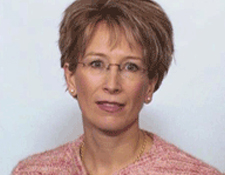
Dr. Virginia Devonshire
Dr. Virginia Devonshire is an Assistant Clinical Professor in the Division of Neurology at the University of British Columbia (UBC). She obtained her undergraduate degree in Honors Neuropsychology at the University of Alberta and medical degree at the University of Calgary. She then completed a Neurology Residency at UBC as well as a Fellowship in Multiple Sclerosis at the world renowned UBC MS Clinic. She served as the Director for one of the world's largest MS Databases, and published many key papers on the natural history of MS. She became the Director of the UBC MS Clinic in 2006. She has extensive involvement in clinical trial research and has been Principle Investigator in many of the pivotal trials. She was honored with the MS Society's National Award of Merit in 2008. In addition to her work in MS, she is involved in the teaching Fellows, residents and students at UBC. She speaks Nationally and Internationally on topics in MS
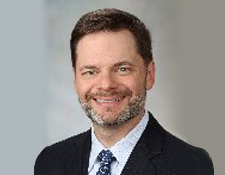
Prof. Dean Wingerchuk
Professor of Neurology
Personal Statement
The goal of this proposed research is to investigate the longitudinal clinical course and pathogenic basis of rare CNS autoimmune diseases such as neuromyelitis optica, transverse myelitis, acute disseminated encephalomyelitis, and autoimmune encephalitides. I have extensive experience investigating the clinical characterization, natural history, pathogenesis, and treatment of these diseases, most notably identifying the first replicated serum biomarker (aquaporin-4 antibodies) for any CNS inflammatory demyelinating disease (neuromyelitis optica; NMO) and subsequently integrating it into validated diagnostic criteria. My Mayo Clinic colleagues and I have used this biomarker to define an expanded spectrum of NMO disorders, leading to novel and successful therapeutic strategies. The challenges inherent in rare disease research may be overcome with dedicated, multicenter collaborative efforts that integrate longitudinal clinical care with biomarker and outcomes research. The current application represents a logical extension of my prior research by establishing a network of centers and co-investigators that share these common overall goals but who have complementary expertise in epidemiology, biomarker evaluation, and T cell biology.
Positions and Honors
- 1999-2003 Assistant Professor of Neurology, Mayo Clinic College of Medicine, Rochester, MN
- 2000-2003 Senior Associate Consultant, Department of Neurology, Mayo Clinic, Scottsdale, AZ
- 2000- Co-Director, Multiple Sclerosis Center, Mayo Clinic, Scottsdale, AZ
- 2001- Co-Director, MERIT Center (Mayo Clinic Evidence-Based Clinical Practice, Education, Research, Informatics, and Training Center)
- 2003- Consultant, Department of Neurology, Mayo Clinic, Scottsdale, AZ
- 2004-2008 Associate Professor of Neurology, Mayo Clinic College of Medicine, Rochester, MN
- 2005- Vice-Chair, Clinical Research, Mayo Clinic, Scottsdale, Arizona
- 2008- Professor of Neurology, Mayo Clinic College of Medicine, Rochester, MN
Other Experience and Professional Memberships
- 1995- Member, American Academy of Neurology
- 2006 American Neurological Association (Elected)
- 2006 Fellow, American Academy of Neurology (Elected)
- 2006- Editorial Advisory Board, Current Medical Research and Opinion
- 2007- Editorial Board, The Neurologist Page 1 Program Director/Principal Investigator (Last, First, Middle)
- 2012- Editorial Board, Drugs in Context
- 2010- Site Director, Neuromyelitis Optica Clinical Consortium, Guthy-Jackson Foundation
- 2012- Member, DSMB, NINDS Network for Excellence in Neuroscience Clinical Trials (NeuroNEXT)
- 2012- Co-Chair, International Panel for Neuromyelitis Optica Diagnosis
- 2013- Chair, Clinical Advisory Committee, National Multiple Sclerosis Society, Arizona Chapter
Honors
- 1987 Governor General Bronze Medal Nominee
- 1993 McLean Silver Medal, Faculty of Medicine, University of Saskatchewan
- 1993 Ciba-Geigy Award in Neurology, University of Saskatchewan
- 1997 Woltman Award for Superior Performance in Clinical Neurology, Mayo Clinic
- 1999 Mayo Foundation Scholarship
- 2004-2007 Mayo Foundation Clinician Educator
- 2004 Outstanding Course Director, Mayo Clinic School of Continuing Medical Education
- 2011 Educator of the Year, Medical and Laboratory Specialties, Mayo Clinic in Arizona
Selected Peer-reviewed Publications (Selected from >135 peer-reviewed publications)
Most relevant to the current application
- Wingerchuk DM, Hogancamp WH, O’Brien PC, Weinshenker BG. The clinical course of neuromyelitis optica (Devic’s syndrome). Neurology 1999;53:1107-1114.
- Lennon VA, Wingerchuk DM, Kryzer TJ, Pittock SJ, Lucchinetti CF, Fujihara K, Nakashima I, Weinshenker BG. A serum autoantibody marker of neuromyelitis optica: distinction from multiple sclerosis. Lancet 2004;364:2106-2112.
- Wingerchuk DM, Lennon VA, Pittock SJ, Lucchinetti CF, Weinshenker BG. Revised diagnostic criteria for neuromyelitis optica. Neurology 2006;66:1485-1489.
- Wingerchuk DM, Lennon VA, Lucchinetti CF, Pittock SJ, Weinshenker BG. The spectrum of neuromyelitis optica. Lancet Neurology 2007;6:810-815.
- Mealy MA, Wingerchuk DM, Greenberg BM, Levy M. Epidemiology of neuromyelitis optica in the United States: A multicenter analysis. Arch Neurol. 2012; 69(9):1176-80.
- Kimbough D, Fujihara K, Jacob A, Lana-Peixoto MA, Leite MI, Levy M, Marignier R, Nakashima I, Palace J, de Seze J, Stuve O, Tenembaum SN, Traboulsee A, Waubant E, Weinshenker BG, Wingerchuk DM, with the GJCF-CC&BR. Treatment of neuromyelitis optica: review and recommendations. Mult Scler Rel Disord 2012;1:180-187.
- Frohman EM, Wingerchuk DM. Transverse myelitis. N Engl J Med 2010;363:564-572.
- Mealy MA, Newsome S, Greenberg BM, Wingerchuk D, Calabresi P, Levy M. Low serum vitamin D levels and recurrent inflammatory spinal cord disease. Arch Neurol 2012;69:352-356.
- Pittock SJ, Lennon VA, McKeon A, Mandrekar J, Weinshenker BG, Lucchinetti CF, O’Toole O, Wingerchuk DM. Eculizumab in AQP4-IgG-positive relapsing neuromyelitis optica spectrum disorders: an open-label pilot study. Lancet Neurology 2013;12:554-562.
Additional recent publications of importance to the field (in chronological order)
- The Transverse Myelitis Consortium Working Group. Proposed diagnostic criteria and nosology of acute transverse myelitis. Neurology 2002;59:499-505.
- Wingerchuk DM and Weinshenker BG. Neuromyelitis optica: Clinical predictors of a relapsing course and mortality. Neurology 2003;60:848-853.
- Weinshenker BG, Wingerchuk DM, Vukusic S, Linbo L, Pittock SJ, Lucchinetti CF, Lennon VA. NMO-IgG predicts relapse following longitudinally extensive transverse myelitis. Ann Neurol 2006;59:566-569.
- Wingerchuk DM, Lennon VA, Pittock SJ, Lucchinetti CF, Weinshenker BG. A secondary progressive clinical course is uncommon in neuromyelitis optica. Neurology 2007;68:603-605.
- Wingerchuk DM, Weinshenker BG. Acute disseminated encephalomyelitis, transverse myelitis, and neuromyelitis optica. Continuum 2013;19:944-967.
- Mealy MA, Wingerchuk DM, Greenberg BM, Palace J, Levy M. Comparison among mycophenolate mofetil, azathioprine, and rituximab for treatment of neuromyelitis optica. JAMA Neurology (In press).

